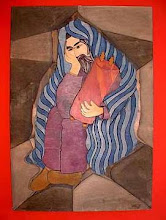UN human rights czar backs plan that seeks end to Zionism
Arbour backs plan that seeks end to Zionism
UN human rights czar supports controversial pan-Arab charter
Steven Edwards
The Ottawa Citizen
Wednesday, January 30, 2008
UNITED NATIONS - Louise Arbour, the United Nations high commissioner for human rights, has thrown her support behind a major pan-Arab human rights charter that commits to the elimination of Zionism.
Some critics say the wording is code for the destruction of Israel, but in a statement from her Geneva headquarters, the former justice of the Supreme Court of Canada welcomes the Arab Charter on Human Rights, which will come into force in mid-March.
"Regional systems of promotion and protection can further help strengthen the enjoyment of human rights, and the ... charter is an important step forward in this direction," Ms. Arbour says.
While the document demands respect for a host of internationally recognized human rights, its references to Zionism concern leading human rights activist groups, including Amnesty International, International Commission of Jurists and UN Watch.
The charter's preamble speaks of "rejecting all forms of racism and Zionism," alleging they violate human rights and threaten international peace and security.
Article 2 of the 53-article document says "all forms of racism, Zionism and foreign occupation and domination" should be "condemned and efforts must be deployed for their elimination."
"These provisions cannot be dismissed as harmless rhetoric," says a letter UN Watch sent Monday to Ms. Arbour asking her for a "clarification" of her support for the charter.
The term Zionist Entity is routinely used in the Middle East and beyond by countries and groups that do not recognize the Israeli state or its right to exist.
The Arab world felt its own charter would better reflect its cultural heritage than do international protections such as the 1948 Universal Declaration of Human Rights.
An initial 1994 version fell short of international standards in many areas, while the current version dates to revisions begun in 2004.
At that time, a newsletter issued by Ms. Arbour's office shortly after her appointment as UN high commissioner for human rights called the charter's Zionism references a "contentious issue."
Amnesty International said in a paper the charter should use international human rights standards as a point of reference "rather than focusing on a particular ideology or ideologies."
A spokesman for Ms. Arbour's office said it planned to address the UN Watch letter in the near future.
Ms. Arbour issued her statement after the United Arab Emirates on Jan. 15 became the seventh country to ratify the charter, thereby triggering a two-month countdown before the measures take force.
Among other issues questioned by international human rights groups, the charter says certain rights can be suspended in the event of a national emergency.
On marriage, the charter stipulates it can only be between a man and a woman.
Women, who face religion-based discrimination in many Islamic countries, are guaranteed equal rights "within the framework of the positive discrimination established in favour of women by the Islamic Shariah, other divine laws, and by applicable laws and legal instruments."
© The Ottawa Citizen 2008
http://www.canada.com/components/print.aspx?id=621d0497-8ed7-4b74-a300-370b106faeb2
Gaza with no weapons or missiles?
-
Here is a Dry Bones Cartoon from back in 2009. It is still true today.
It amazes me that I can find cartoons of Yaakov's so easily that still fit
the cu...
29 minutes ago



















No comments:
Post a Comment